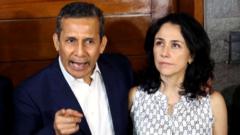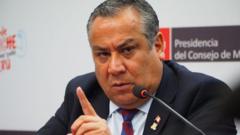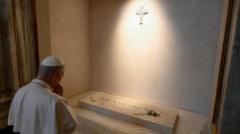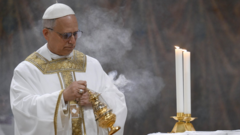In a landmark decision, a Peruvian court has sentenced ex-president Ollanta Humala to 15 years and his wife, Nadine Heredia, to the same, after finding both guilty of laundering funds linked to the Brazilian construction giant Odebrecht.
Ollanta Humala and Nadine Heredia: A Legacy of Corruption and Conviction

Ollanta Humala and Nadine Heredia: A Legacy of Corruption and Conviction
Former President of Peru, Ollanta Humala, alongside his wife Nadine Heredia, faces a harsh reality after a conviction for money laundering related to campaign financing.
Former Peruvian president Ollanta Humala and his wife Nadine Heredia are enduring a significant fall from grace as they both received 15-year prison sentences for money laundering. A court in Lima determined that the couple accepted illegal funds from the construction firm Odebrecht to support their election campaigns in 2006 and 2011.
This verdict concludes over three years of legal battles, despite the couple consistently claiming their innocence. The couple's convictions highlight deep-rooted issues of corruption within the region, especially as Odebrecht was implicated in widespread bribery across Latin America.
During the trial, prosecutors proposed harsher sentences—20 years for Humala and over 26 years for Heredia. While Humala attended the court hearing, Heredia followed proceedings through video link, evidencing a legal drama that has captivated the nation. Following the verdict, the Peruvian foreign ministry confirmed that Heredia, who has sought asylum in Brazil, will be able to travel there with their son.
Ollanta Humala, a former army officer, rose to prominence in 2000 during a military rebellion and has since had a contentious political career marked by fluctuating allegiances. Initially aligning with Hugo Chávez of Venezuela, Humala later moderated his policies, drawing inspiration from Brazil's Luiz Inácio Lula da Silva.
Nevertheless, his presidency faced challenges as violent social conflicts emerged, ultimately diminishing his popularity. The unraveling of Humala's political career was further accelerated by the revelations from Odebrecht in 2016, when the company confessed to widespread corruption, prompting investigations into multiple political figures across Latin America.
Humala and Heredia's saga serves as a cautionary tale about political integrity and the profound implications of corruption in governance. This ruling marks a significant moment in the ongoing fight against corruption in Peru and throughout the region.


















